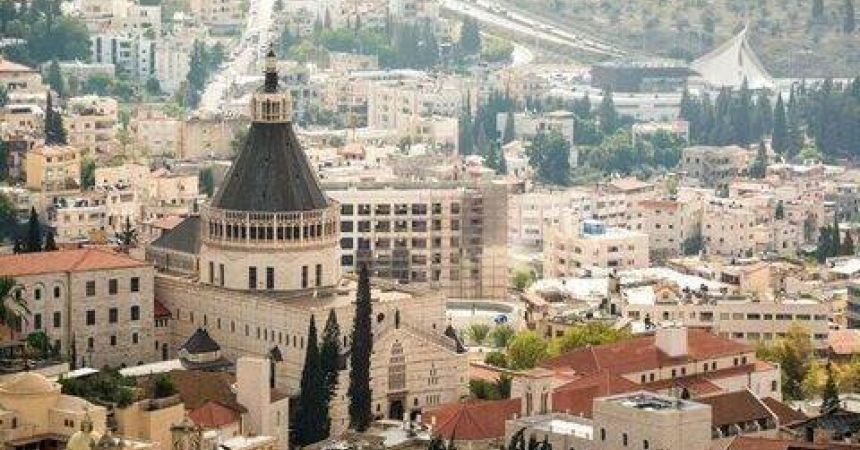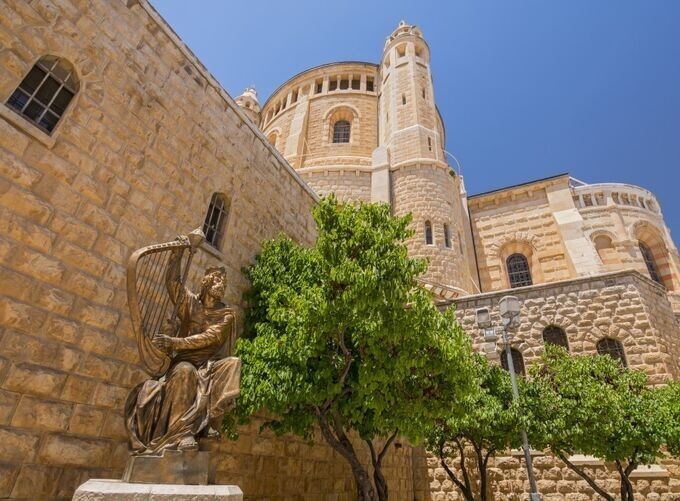
Jerusalem Travel Guide for First-Time Visitors
Jerusalem, one of the oldest cities in the world, is a place where ancient history and modern life coexist. Known as a city of profound religious significance, it is a major pilgrimage site for Jews, Christians, and Muslims alike. This ultimate holiday guide to Jerusalem will take you through its rich history, key attractions, vibrant neighborhoods, culinary delights, and practical travel tips to ensure you make the most of your visit.
Jerusalem: A Glimpse into Its Storied Past
Jerusalem’s history dates back over 5,000 years. It is first mentioned in ancient Egyptian texts and later becomes a significant city for the Canaanites.
Biblical Era
In the 10th century BCE, King David conquered Jerusalem and made it the capital of the Kingdom of Israel. His son, King Solomon, built the First Temple, making Jerusalem the spiritual center for the Jewish people.
Roman and Byzantine Periods
The Romans conquered Jerusalem in 63 BCE, and the city saw significant changes, including the destruction of the Second Temple in 70 CE. It became an important center for early Christianity under Byzantine rule.
Islamic and Crusader Periods
In 638 CE, Jerusalem was conquered by the Muslim Caliphate under Caliph Umar. The Crusaders captured the city in 1099, turning it into a Christian kingdom until it was recaptured by Muslim forces under Saladin in 1187.
Ottoman Rule to Modern Era
Jerusalem was under Ottoman rule from 1517 to the end of World War I. It then came under British Mandate until the establishment of the State of Israel in 1948. Today, Jerusalem is Israel’s capital and a city of immense cultural and religious significance.
Key Attractions
The Old City of Jerusalem, a UNESCO World Heritage site, is divided into four quarters: Jewish, Christian, Muslim, and Armenian.
Western Wall (Kotel)
The Western Wall is the holiest site in Judaism. It is a remnant of the Second Temple and a place of prayer and pilgrimage.
- Visitor Tip: Dress modestly and be respectful of those praying.
Temple Mount and Dome of the Rock
The Temple Mount is a site of immense religious significance for Jews, Christians, and Muslims. The Dome of the Rock, with its iconic golden dome, is a major Islamic shrine.
- Visitor Tip: Non-Muslims can visit the Temple Mount during specific hours, but access to the Dome of the Rock and Al-Aqsa Mosque is restricted.
Church of the Holy Sepulchre
This church, located in the Christian Quarter, is believed to be the site of Jesus’ crucifixion, burial, and resurrection. It is a major pilgrimage destination for Christians.
- Visitor Tip: Visit early in the morning to avoid crowds.
Via Dolorosa
The Via Dolorosa, or "Way of Suffering," is the path that Jesus is believed to have walked on his way to his crucifixion. It starts in the Muslim Quarter and ends at the Church of the Holy Sepulchre.
- Visitor Tip: Follow the 14 Stations of the Cross along the route.
Armenian Quarter
The Armenian Quarter is home to the Armenian Patriarchate and several historic churches. It offers a glimpse into the ancient Armenian presence in Jerusalem.
- Visitor Tip: Explore the narrow streets and visit St. James Cathedral.
Modern Jerusalem
Yad Vashem
Yad Vashem is Israel’s official memorial to the victims of the Holocaust. The complex includes the Holocaust History Museum, the Children’s Memorial, and the Hall of Remembrance.
- Visitor Tip: Allocate several hours to explore the museum and grounds.
Israel Museum
Visit Israel Museum houses an extensive collection of art and archaeological artifacts, including the Dead Sea Scrolls.
- Visitor Tip: Don’t miss the Shrine of the Book, where the Dead Sea Scrolls are displayed.
Machane Yehuda Market
This bustling market offers a sensory feast with its array of fresh produce, spices, baked goods, and street food. In the evening, it transforms into a lively nightlife spot.
- Visitor Tip: Sample local delicacies like hummus, falafel, and fresh pastries.
Mount of Olives
The Mount of Olives offers some of the best panoramic views of Jerusalem. It is also a site of great religious significance, with numerous churches and Jewish cemeteries.
- Visitor Tip: Visit the Garden of Gethsemane and the Church of All Nations.
Exploring Israel's Vibrant Neighborhoods
West Jerusalem
West Jerusalem is the modern part of the city, known for its cafes, restaurants, and shopping districts.
Ben Yehuda Street
Ben Yehuda Street is a bustling pedestrian street in downtown Jerusalem. It is lined with shops, cafes, and street performers.
- Visitor Tip: Enjoy a coffee at a sidewalk cafe and people-watch.
Emek Refaim
Located in the German Colony, Emek Refaim is a popular street known for its vibrant cafe culture and boutique shops.
- Visitor Tip: Try the local cuisine at one of the many restaurants.
East Jerusalem
East Jerusalem is predominantly Arab and offers a different cultural experience compared to West Jerusalem.
Old City Markets
The markets in the Old City are a sensory delight, offering everything from spices and textiles to souvenirs and jewelry.
- Visitor Tip: Bargain with vendors for the best prices.
Sheikh Jarrah
This historic neighborhood is known for its beautiful architecture and important political significance.
- Visitor Tip: Explore the area’s historic buildings and enjoy local food.
Israel's Culinary Treasures
Traditional Israeli Cuisine
Israeli cuisine is a melting pot of flavors, influenced by Jewish diaspora traditions, Middle Eastern, and Mediterranean cuisines.
Must-Try Dishes
- Hummus: Creamy chickpea dip, often served with warm pita bread.
- Falafel: Deep-fried chickpea balls, typically served in a pita with salad and tahini.
- Shakshuka: A dish of poached eggs in a spicy tomato and pepper sauce.
- Sabich: A pita sandwich filled with fried eggplant, hard-boiled eggs, and a variety of salads.
- Kanafeh: A sweet dessert made of thin noodle-like pastry soaked in syrup and layered with cheese.
Dining Options
Jerusalem offers a range of dining options, from street food stalls to fine dining restaurants.
Street Food
- Mahane Yehuda Market: Enjoy local delicacies at the market’s food stalls.
- Old City Markets: Try traditional dishes from various stalls in the Old City.

Mid-Range Restaurants
- Azura: Known for its traditional Middle Eastern stews.
- Chakra: Offers a mix of Mediterranean and Israeli cuisine.
Fine Dining
- Machneyuda: Renowned for its creative dishes and lively atmosphere.
- Eucalyptus: Specializes in modern interpretations of biblical cuisine.
Immersive Cultural Experiences in Israel
Festivals and Events
Jerusalem hosts numerous festivals and events throughout the year, reflecting its diverse cultural and religious heritage.
Jewish Festivals
- Passover (Pesach): Celebrated in April, commemorating the Exodus from Egypt. Special foods and rituals are observed.
- Yom Kippur: The Day of Atonement, a solemn day of fasting and prayer.
- Hanukkah: The Festival of Lights, celebrated in December with the lighting of the menorah, special foods, and festivities.
Christian Festivals
- Easter: Celebrated with processions and services in Jerusalem and Nazareth.
- Christmas: Particularly significant in Bethlehem and Nazareth, with processions, services, and celebrations.
Islamic Festivals
- Ramadan: A month of fasting, prayer, and reflection, with special meals to break the fast.
- Eid al-Fitr: Celebrates the end of Ramadan with festive meals and giving of gifts.
Art and Music
Jerusalem has a thriving arts scene, from contemporary art galleries to classical music performances.
Key Venues
- Jerusalem Theatre: Hosts a variety of performances, including plays, concerts, and dance.
- Tower of David Museum: Offers cultural events and nighttime light shows.
- Jerusalem Symphony Orchestra: Renowned for its classical music performances.
Practical Travel Tips
Getting Around
Jerusalem has an efficient transportation network, making it easy to explore the city.
Public Transport
- Light Rail: Connects key areas in the city, including the Old City and central neighborhoods.
- Buses: Extensive network connecting all parts of the city.
- Shared Taxis (Sheruts): Operate on fixed routes and are a good option for traveling on Shabbat.
Language
- Hebrew and Arabic: The official languages. English is widely spoken in tourist areas.
- Useful Phrases: Learning a few basic Hebrew phrases can enhance your travel experience.
Currency
- Israeli Shekel (ILS): The official currency. Credit cards are widely accepted, but it’s good to carry some cash for small purchases.
- ATMs and Exchange: Available at airports, banks, and exchange bureaus.
Safety and Security
- Stay Informed: Keep up to date with local news and travel advisories.
- Security Checks: Be prepared for security checks at airports and public places.
- Health Precautions: Tap water is safe to drink, and health services are excellent.
Respecting Local Customs
- Dress Modestly: Especially important when visiting religious sites.
- Observing Shabbat: From Friday evening to Saturday evening, many businesses close. Plan accordingly.
- Photography: Always ask for permission before taking photos of people, especially in religious or conservative areas.
Sample Itineraries
3-Day Itinerary
Day 1: Exploring the Old City
- Morning: Visit the Western Wall and Temple Mount.
- Afternoon: Explore the Church of the Holy Sepulchre and Via Dolorosa.
- Evening: Dinner in the Armenian Quarter.
Day 2: Modern Jerusalem
- Morning: Visit Yad Vashem.
- Afternoon: Explore the Israel Museum.
- Evening: Stroll through Machane Yehuda Market and enjoy dinner.
Day 3: Nature and Panoramas
- Morning: Visit the Mount of Olives and the Garden of Gethsemane.
- Afternoon: Explore Ein Kerem, a picturesque neighborhood.
- Evening: Relax and enjoy a meal in the German Colony.
5-Day Itinerary
Day 1-2: Exploring the Old City and Modern Jerusalem
- Follow the 3-day itinerary for the first two days.
Day 3: Day Trip to Bethlehem and Jericho
- Morning: Visit the Church of the Nativity in Bethlehem.
- Afternoon: Explore the ancient ruins of Jericho.
- Evening: Return to Jerusalem for dinner.
Day 4: Dead Sea and Masada
- Morning: Float in the Dead Sea.
- Afternoon: Visit Masada.
- Evening: Return to Jerusalem and relax.
Day 5: Day Trip to Ein Gedi
- Morning: Hike in Ein Gedi Nature Reserve.
- Afternoon: Explore the botanical gardens in Ein Gedi.
- Evening: Return to Jerusalem for a farewell dinner.
Jerusalem: A Journey Through History, Culture, and Spirit
Jerusalem, with its rich history, cultural diversity, and spiritual significance, offers a travel experience like no other. From the ancient streets of the Old City and the vibrant markets to the serene Mount of Olives and modern museums, there is something for everyone in this remarkable city. By following this ultimate guide, you can ensure a memorable and enriching visit to Jerusalem, immersing yourself in its unique and captivating charm.



